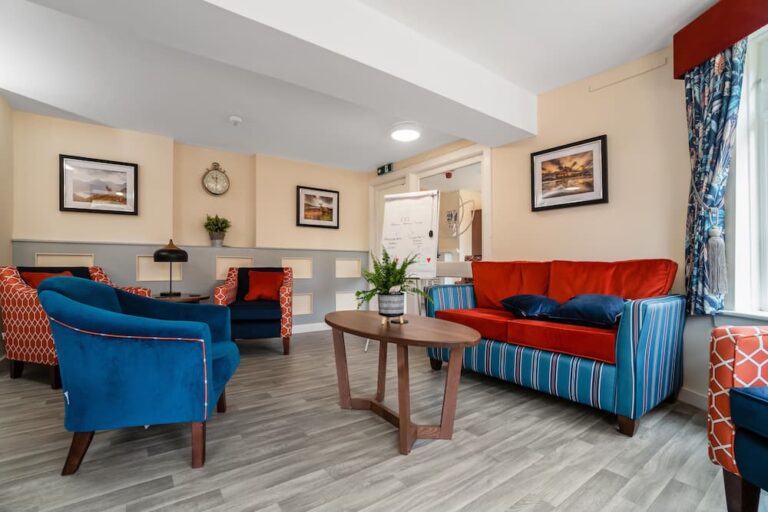When completing addiction treatment, commonly through a rehab programme, relapse prevention also carries high weightage when looking to recover.
Completing a range of addiction treatments, without working on a prevention plan may be worthless. Although the completion of medical, psychological and social treatment options will promote recovery, there is still risk present of a drug or alcohol relapse.
With this in mind, without understanding the underlying causation, influencing substance abuse, along with a personal relapse prevention plan, long-term recovery may be hanging in the balance.
 Get in Touch
Get in Touch
Our admissions team can give you expert help and advice on the best options available for our Relapse Prevention Treatment, get in touch today to find out more.
Why is Relapse Prevention important?
If you’ve completed a range of addiction treatments, you are well on your way to achieving sustainable recovery. However, without learning relapse prevention techniques, the time, energy and financial investment placed within rehab may have been pointless. Although drug or alcohol relapses will not happen to all individuals, commonly only a small minority will experience one post rehab, there is still a chance that disruptions can occur.
With this in mind, at Nova Recovery private rehab, we feel a duty of care to ensure that all clients are armed with techniques to help them spot the warning signs of a relapse, along with ways to avoid any temptations.
To ensure that this can be done successfully, understanding the underlying trigger causing the initial abuse of drugs or alcohol will be required.
Without this step, it can be difficult to reduce full risk of relapse. Whether that’s certain environments or people, to coping mechanisms and stress, we will work with you to identify the causation. From here, positive coping mechanisms will be formed to help you prevent relapse probabilities.
Without completing this step, your first exposure to drugs or alcohol post treatment, classified as a high-risk situation may result in a relapse. This is something we hope that all clients can avoid, by committing to a personal relapse prevention plan.


Scotland Based Mental Health & Addiction Treatment Providers
Key offerings available include:
- Drug and Alcohol Rehab in Scotland
- 1:1 Support from Clinical Nurse Practitioners, Registered Mental Health Nurses and Therapists
- Access to Trained Psychiatrists
- 24-Hour Nursing Care
- Comfortable & Quality Accommodation
- Clinically Led Recovery Model Underpinned by Cognitive Behavioural Therapy (CBT)
- 1 Year Aftercare
So what are you waiting for?
Begin your journeyThe Stages of Relapse
Relapses will commonly occur in the mind before any action is activated. With this in mind, an individual could experience a relapse before consuming drugs or alcohol.
As there’s potential for a relapse to occur, before clear warning signs present themselves, it is advisable for all individuals to understand the stages of relapse. Likewise, it is imperative that relapse prevention techniques are set in place to continue through each stage.
Emotional Relapse
When recovering from a drug or alcohol addiction, it is likely that a degree of emotional effect has been experienced. In short, mental health problems and episodes are very common, including depression, anxiety and paranoia. Throughout addiction treatment, those emotions will be worked through.
However, if coping mechanisms aren’t maintained post rehab, those emotions can creep back up, slowly advancing individuals through the emotional relapse stage. With this potential, it’s advised that all recovering individuals maintain a strong self-care routine, while relying on support networks for reassurance.
Mental Relapse
If the warning signs of an emotional relapse are avoided, individuals can progress to the mental relapse stage. This is where negative thoughts and feelings regarding recovery abilities are made. This is identified as a personal battle, attempting to justify further substance abuse.
To ensure relapse prevention can be achieved, again, maintaining a self-care routine is vital, along with continuing therapy, support groups and alcoholics anonymous sessions.
Physical Relapse
If both emotional and mental relapse stages have unfortunately activated, it is likely that individuals will advance to a physical relapse. This is where drug or alcohol consumption will restart, where individuals believe it is the right thing to do. They will also justify their actions while believing that occasional consumption is safe.
This is exactly why a relapse prevention plan must be in place to ensure that clients can spot warning signs early on, while also working through any temptations. It’s also advisable that loved ones understand the relapse prevention techniques used, to observe and intervene if necessary.
What can Cause a Relapse?
Common causes of a drug or alcohol relapse lies within initial addiction triggers. From daily stresses and environments, to underlying mental health issues and lifestyles, these factors can reappear and cause relapse triggers. Likewise, withdrawal symptoms can also influence emotional and mental relapse stages, making individuals believe that recovery isn’t possible.
Uncovering the initial addiction triggers is vital, while ensuring that psychological healing has been achieved through rehab. To safeguard relapse prevention, techniques should be personal and fit the coping mechanisms of each client. By forming healthy and personal relapse prevention techniques, clients will be able to work through the common relapse stages, while also understanding when help is required.
Relapse Prevention Techniques
To reduce the risk of relapses, through our rehab programmes here at the Nova Recovery addiction centre, we will implement relapse prevention techniques. We will educate clients on the importance of a positive and healthy routine, including sleep, diet, physical activity and mindfulness. This approach will build a strong foundation for improving quality of life beyond drugs or alcohol.
Alongside developing a positive lifestyle, relapse prevention techniques will be communicated for each potential trigger, post rehab. It’s important to remember that internal and external triggers can occur. By working through a wide range of addiction treatments, including support groups and cognitive behavioural therapy, strong foundations should be in place to advance through triggers.
However, in the case of a potential relapse, a relapse prevention plan will be in place for you, along with aftercare services through our facility. For some individuals, breathing exercises, mindfulness and therapy will work. However, for others, greater treatment may be required to reduce the risk of relapse.
Please be reassured that by completing a comprehensive rehab programme, you will reduce your chances of experiencing a relapse.
However, to ensure you feel comfortable and confident in your recovery, we can arrange a relapse prevention plan and techniques to support you on your journey. Get in touch today for further information on our available addiction treatments and rehab programmes.
FAQ's About Relapse Prevention At Nova Recovery
John Gillen
- Author
- Last updated: June 22, 2023
John has travelled extensively around the world, culminating in 19 years’ experience looking at different models. He is the European pioneer of NAD+ (Nicotinamide Adenine Dinucleotide) treatment to Europe in 2010; and recently back from the USA bringing state of the art Virtual Reality Relapse Prevention and stress reduction therapy. His passion extends to other metabolic disturbances and neurodegenerative diseases. The journey continues. In recent times, John has travelled to Russia to study and research into a new therapy photobiomudulation or systemic laser therapy working with NAD+ scientists and the very best of the medical professionals in the UK and the USA, together with Nadcell, Bionad Hospitals own select Doctors, nurses, dieticians and therapists. Johns’ passion continues to endeavour to bring to the UK and Europe new developments with NAD+ Therapy in preventive and restorative medicine and Wellness. In 2017 John Gillen was made a visiting Professor at the John Naisbitt university in Belgrade Serbia.
Ready to start Recovery?
Located in Largs, North Ayrshire, Nova Recovery offers a tranquil setting that can allow you to get away from the pressures of everyday life and the triggers associated with Mental Health and Addiction. The addiction treatment offered has been designed to provide treatment throughout Scotland with transport to the private rehab being included with all programmes.
Start your journey today by considering treatment with the help of the medical expertise delivered by the Nova Recovery team.






